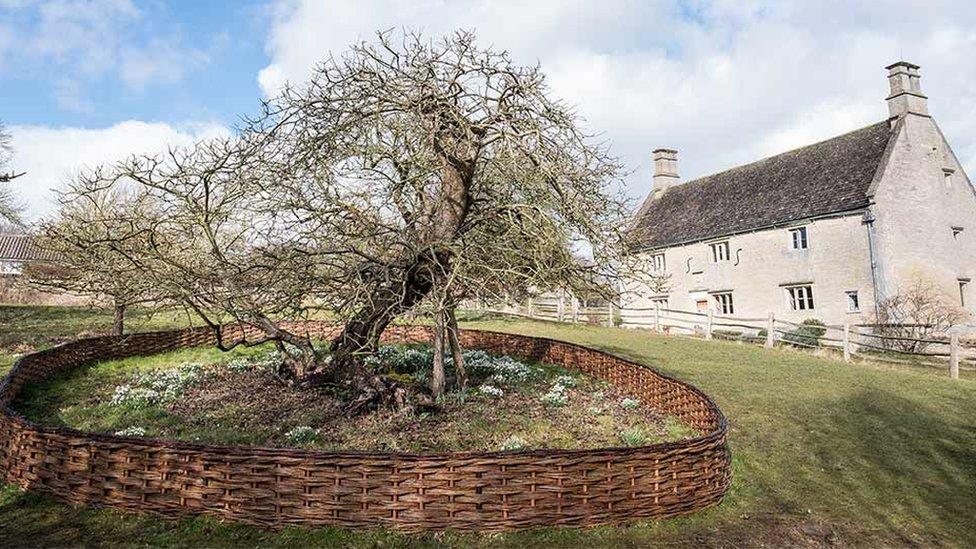Cambridge University artist makes ink from Sir Isaac Newton tree
- Published
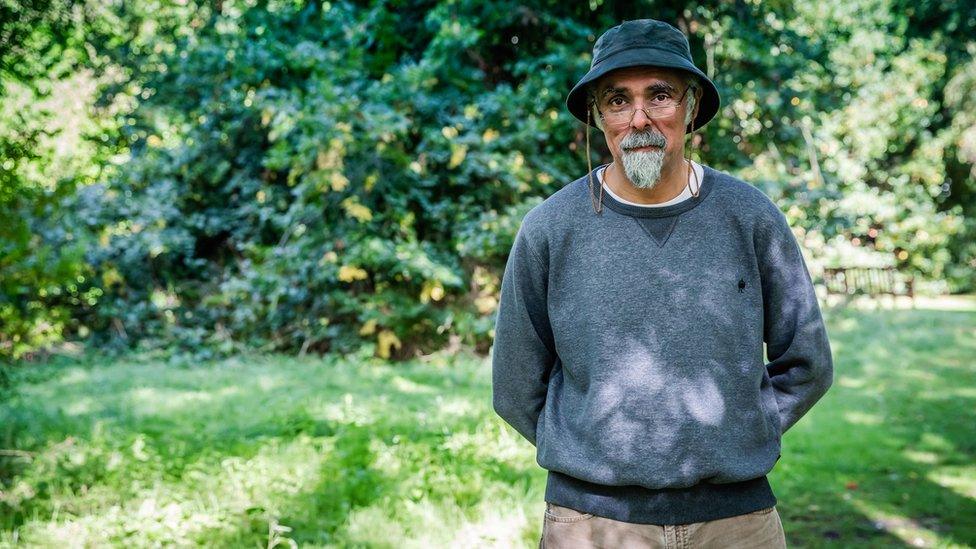
Mr Ali is the resident artist at the botanic garden in Cambridge
An artist has made ink from a treasured and iconic apple tree that was blown down by Storm Eunice last year.
The tree at Cambridge University Botanic Garden was a scion - a descendent - of the tree that was said to have inspired Sir Isaac Newton's theory of gravity.
The apple tree fell in February 2022.
The garden artist-in-residence Nabil Ali extracted ink from its bark and is creating an artwork featuring 68 model apples.
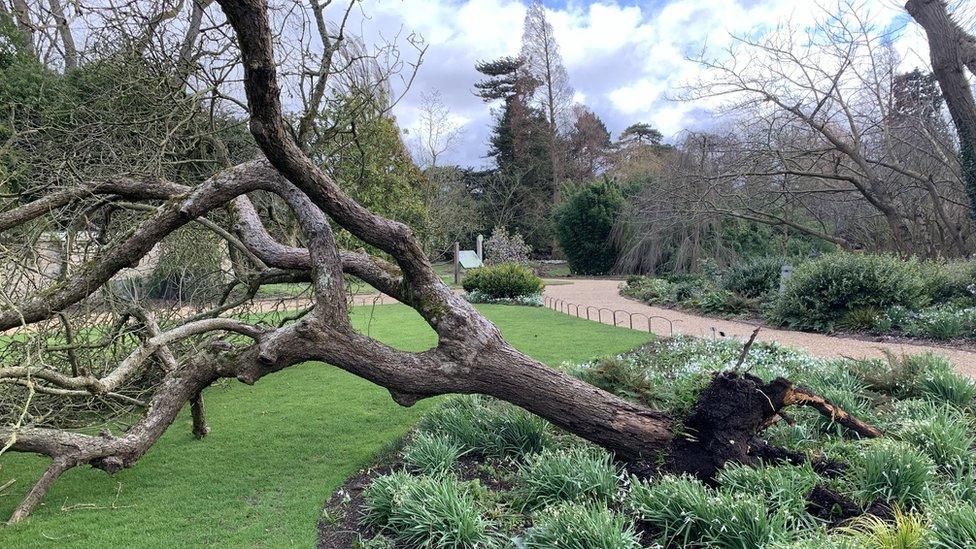
The botanic garden said the tree was a "sad loss" after the storm in 2022
"To our knowledge, this is the first time anyone has discovered the colours hidden within a descendent of Newton's inspiring tree," he said.
"I thought I'd end up with black pigment but it's a dark golden yellow.
"I'm calling it Newton's Gold."
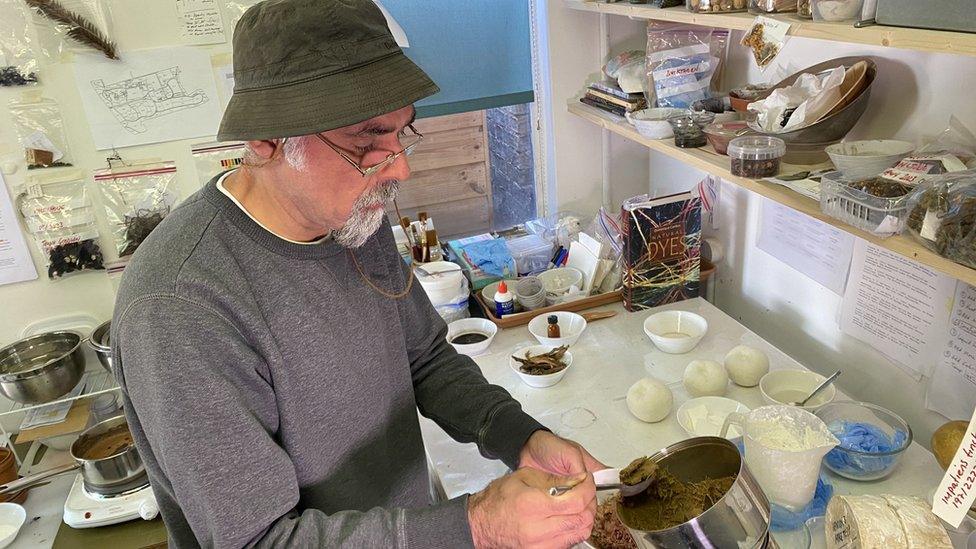
Mr Ali is painting the ink onto 68 model apples - representing 68 years the tree at Cambridge was alive
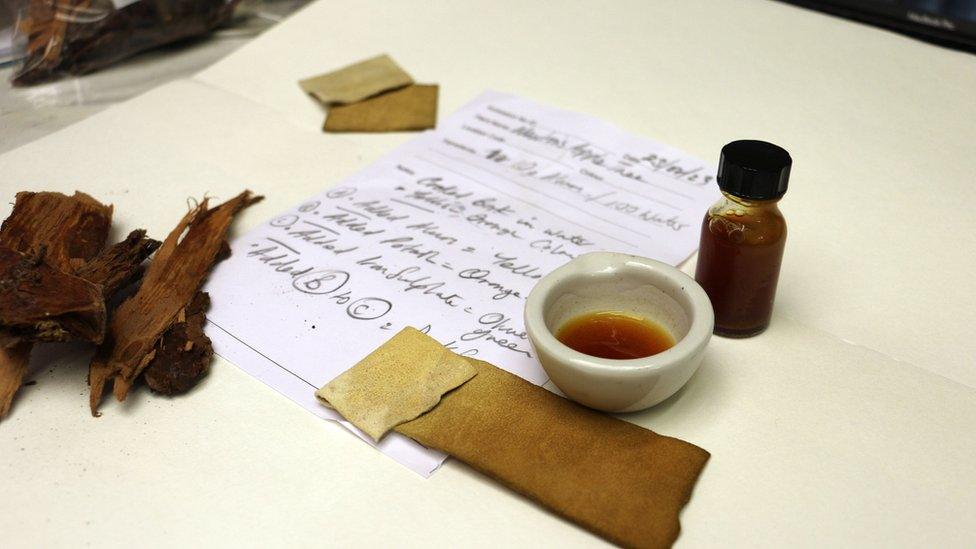
The ink was extracted from the tree bark and processed in a workshop
Sir Isaac was said to have been inspired when an apple fell from the tree in his back garden, at Woolsthorpe Manor near Grantham, Lincolnshire, in the 1660s.
The cloned tree was planted at the botanic garden in 1954 and was made using a genome sequenced as part of the Darwin Tree of Life project, external.
The felled tree has been stored away since it fell and Mr Ali made the ink by peeling away some of the bark and processing it in his workshop.
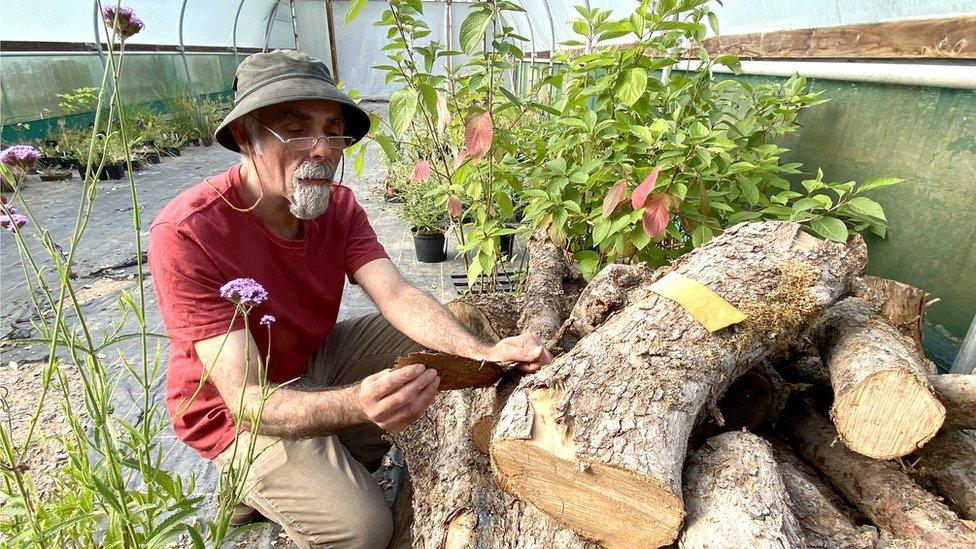
Nabil Ali said he called his ink Newton's Gold
Dr Samuel Brockington, curator at the botanic garden, said the tree was held in "great affection" by staff and visitors.
"We're so pleased that Nabil has managed to sample its colour," said Dr Brockington.
"His work is an inspiring way of engaging people in the natural world through art and performance."

Follow East of England news on Facebook, external, Instagram, external and X, external. Got a story? Email eastofenglandnews@bbc.co.uk, external or WhatsApp 0800 169 1830
- Published21 February 2022
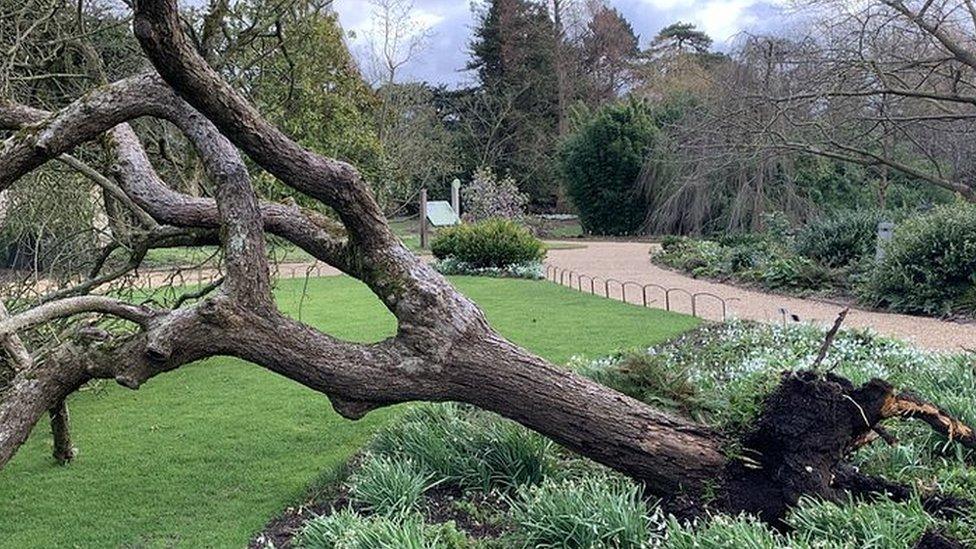
- Published6 March 2020
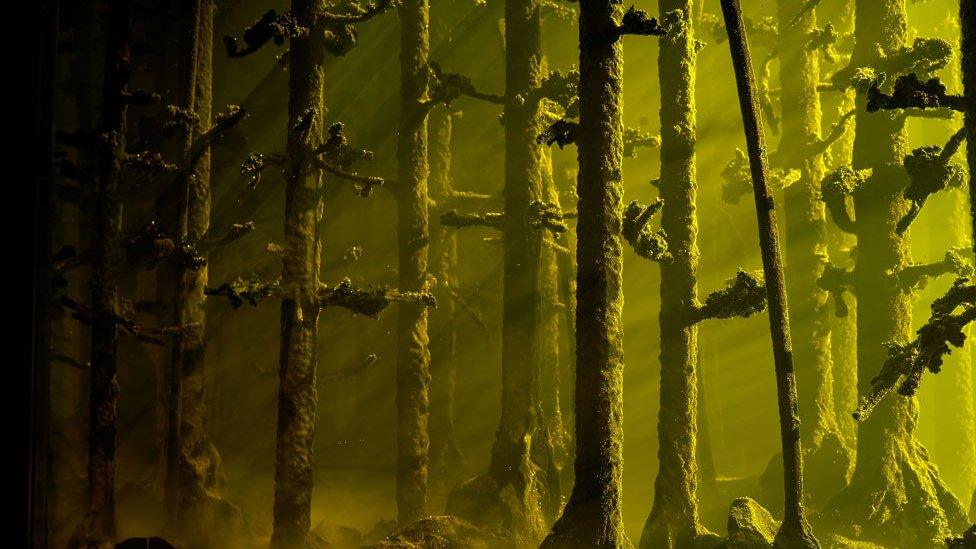
- Published13 March 2018
